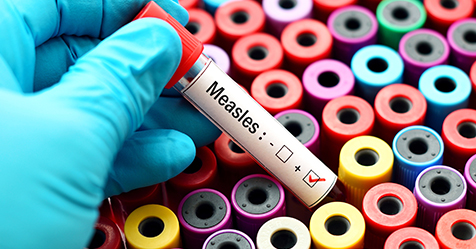COVID-19 Update: Various Facilities Struggle to Adapt to Reopening Guidelines
Dental offices, restrooms, meat processing facilities face unique hygiene challenges
Dental procedures are high risk for infectious diseases
Whether they have been operating during the pandemic or closed, different facilities have unique challenges to keep them clean and free of the SARS-CoV-2 virus that causes COVID-19 due to the work performed inside. One example is dentist offices.
Dental offices across the United States, including those in Georgia, won’t be prepared anytime soon to meet even the minimum requirements and stringent infection control procedures set by the U.S. Centers for Disease Control and Prevention (CDC), the Atlanta Journal-Constitution reports.
Although dental care specialists have worn masks and gloves when treating patients for decades, they also work in environments that are at the highest risk of exposure to infectious diseases. Practically every procedure conducted in a dentist’s office results in some form of aerosol, produced when devices, such as drills, ultrasonic scalers, and air-water syringes, eject spatter or droplets from the mouth into the air and onto clothing and other surfaces. Due to these risks, dental offices need to follow strict cleaning protocols.
Minimum standards of care for dental offices require that they provide sufficient and appropriate personal protective equipment, such as N-95 masks, gowns, and disposable gloves. However, many offices won’t be able to locate equipment that is in such short supply and prioritized for hospitals. As a result, many dentists will have to see about one-fourth of the patients they saw prior to the news guidelines, leading to growing concerns that patients without access to cleanings will be at risk from serious complications from gum disease, such as heart disease or diabetes complications.
Meat-processing facilities report outbreaks
Fresh meat plants, although they have been operational throughout the pandemic, have been in the news due to outbreaks at several facilities across the country. According to the CDC, coronavirus has infected workers at 115 meat and poultry processing plants in 19 states, resulting in 4,900 cases of the virus and 20 deaths.
Over the weekend, Tyson Foods closed a plant in Wilkesboro, North Carolina for deep cleaning and sanitizing due to a coronavirus outbreak, FOX Business reports. Wilkes County, where the plant is located, has 194 COVID-19 cases, with a majority linked to the Tyson plant.
Meat processing plants are among the facilities with specialized cleaning requirements due to federal laws and mandatory inspections.
Time to rethink restrooms
Even an ordinary-seeming office facility contains a hazardous area—the restroom. Infectious disease specialists believe public restrooms should be redesigned to minimize the spread of pathogens, ABC Radio Perth reports.
Although restrooms contain soap and paper towels for handwashing, many lack the technology that allows people to avoid re-contaminating their hands by touching the faucets, soap dispensers, and the door handles. The latest technology used for no-touch restrooms allows patrons to use the toilets and wash their hands without once touching any of the fixtures.
Other design features to consider include circular restrooms with one-way entry and a separate exit so users don’t contaminate their hands while exiting and they come out of the restrooms cleaner than they arrived.
If your facility is looking for guidance on meeting post-pandemic cleaning protocols, consider obtaining GBAC STARTM accreditation through the Global Biorisk Advisory Council® (GBAC), a Division of ISSA.

